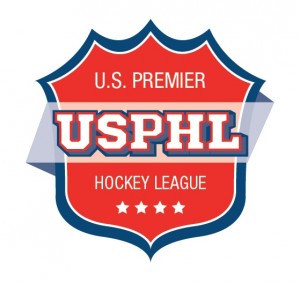Parents, beware: Stay away from online message boards
 About six years ago, as a first-time hockey parent of a Mite house player, I recall asking a couple of the veteran travel parents if they had any recommendations for information about different hockey clubs and the tryout process.
About six years ago, as a first-time hockey parent of a Mite house player, I recall asking a couple of the veteran travel parents if they had any recommendations for information about different hockey clubs and the tryout process.
One parent was vocal about the wealth of resources you could find on the hockey message boards. The other parent was equally as vocal and stated in no uncertain terms that I should avoid those sites like the gaps in the mats at hockey rinks. I found myself fascinated by these differing opinions and began to scour the internet to learn more about hockey message boards.
These message boards are mostly populated by “adults” who have little or no understanding of the impact of their conversations on their children. These boards contain page after page of adults disparaging children and their performance in hockey. Visit the first-year Mite message board and clearly see the most upsetting comments imaginable regarding the athletic prowess of a child who probably learned to ride a bike less than two years before. I cannot even begin to describe the level of hate often expressed toward certain coaches whom parents will openly accuse of things that range from tax evasion to bribery.
Yet to their face, they say nothing.
Behind the guise of anonymity, parents attack other parents, clubs and governing bodies and it’s not uncommon for these adults to spend time arguing over the over/under scores of children’s hockey games every weekend. Further, parents will actively refer in vague terms to players or families whom they feel are not worthy to play with their children or whom they feel will never perform at the level that they (referring to the collective message board community) believe they should reach.
This was most beautifully illustrated by the torrent of messages regarding the California Amateur Hockey Association board decision to implement an evaluation protocol to help determine placement of teams for safety purposes. If one agrees or disagrees with the implementation of this policy is an individual’s choice, but the message boards erupted with such vitriol and angst equal to hot lava being poured upon the Stanley Cup. Furthermore, almost every individual on the board went to great lengths to discuss the appropriateness of ranking one team or another in a division and the heresy of certain teams being included or not included.
It is crystal clear that the manner in which these adults are sharing their thoughts DOES impact the manner in which their children integrate the game and their attitude toward other players and clubs. Hockey as a sport is clearly one that brings people together and provides children with a long term, incredibly healthy after-school activity, which promotes friendship, discipline, and positive habits. What can easily erode the positive impact of hockey, however, is the negative filters and unresolved maladaptive manipulations of the parent, which is seen most clearly in the messages posted upon these boards.
Some parents have asked for my suggestions regarding the messages posted on the boards (because regardless of disclaimers, the children ARE reading these boards and hearing other adults speak negatively about them). What I tell them is to inform their players and children that there will always be people who are negative and there will always be people who search for an anonymous forum to display their unresolved mental health issues. And, most importantly, to consider what it felt like to hear or read something negative about their club or team and hold that memory for the next time they consider making a rude or inappropriate comment on social media. It might be too late to help the “adults” on these message boards integrate a different mindset, but there is a chance for the players of today to become the responsible and positive hockey parents of tomorrow.
Trevor Small, Psy.D., is a clinical psychologist who is the Safe Sport coordinator for the Los Angeles Jr. Kings, the clinical director of Bridges to Recovery, and is in private practice in Santa Monica, Calif. He has provided mental health services to adolescents and adults for almost 30 years.










